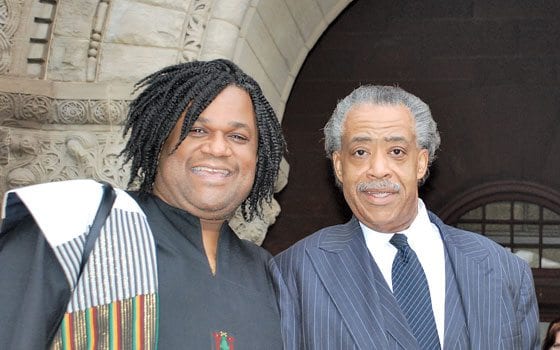
Experts, activists and thinkers gathered at Harvard University last weekend to discuss how to fill leadership gaps and address societal problems related to poverty, justice and jobs.
During a three-day “solution-finding workshop,” the phrase “social entrepreneurship” was tossed around quite a bit, as were references to the dismal state of the economy. The phrase was loosely defined as leadership intended to organize, create and manage ventures aimed at making social change.
Harvard professors and others emphasized that social entrepreneurship is essential in these tough economic times, and encouraged audience members to take actions that can improve outcomes for people and communities.
“There’s no time better than a recession to grab a big idea and own it,” said Harvard Business School Professor Rosabeth Moss Kanter.
Kanter heads the Harvard Advanced Leadership Initiative. In the year-long fellowship program, experienced professionals from a wide range of businesses study at the university and learn new skills and strategies to help them transition into leadership roles in the public service and community sectors.
The business school initiative and Harvard Law School’s Charles Hamilton Houston Institute for Race and Justice co-sponsored the workshop.
While it focuses more on contributing to society than bolstering the bottom line, social entrepreneurship shares the same basic principle as its private-sector counterpart, according to Kanter: “You have a goal and you are going to get there, whether or not resources are actually at hand.”
While a recession can provide a great opportunity to kick off new programs, the panel said, a sense of urgency alone will not help social entrepreneurs succeed — they also need a clear vision and bold branding.
“If you do name something really, really big, it’s powerful enough that people will flock to it, even though it looks very difficult,” said Kanter.
Michael Brown and Alan Khazei said they kept that idea in mind when they co-founded City Year, a nonprofit organization devoted to bringing together young people of all backgrounds for a year of full-time service.
“… City Year — the name reflects the idea [that] just like you have a senior year or junior year, we should have a City Year, where the community is your classroom and you’d be … alumni of your city,” said Brown.
Brown and Khazei founded City Year in 1988 based on the belief that young people can change the world. More than 10,000 red jacket-clad City Year corps members have served over the past two decades. This week, the South End-based organization celebrated 20 million hours of community service, employing young people as tutors, mentors and role models working to transform schools and neighborhoods.
“The impact of young people … is highest on children,” Brown said. “There’s a unique bond between 17- and 25-year-old idealistic young people in the red jackets with this kind of spirit [that] can have an impact on children.”
Brown founded the organization while he was a law student at Harvard, serving as a clerk for federal Judge Stephen Breyer, who was later appointed to the U.S. Supreme Court by President Bill Clinton. Brown and lifelong friend Khazei raised $1 million and launched a 50-person pilot program, which has now grown to 18 locations in the U.S. and abroad in Johannesburg, South Africa.
“Learn something you are passionate about and find the partner — there’s nothing else to the formula more than that,” said Brown.
The panel emphasized that perseverance and passion are key in social entrepreneurship.
“The difference between the success and failure for entrepreneurs … is how long they give it before they give up,” said Kanter. “It should be something you are really passionate about so that you can be persistent.”
For Earl Martin Phalen, that passion was public education. He was one of the founders of Building Educated Leaders for Life (BELL), an organization dedicated to increasing the academic achievements, self-esteem and life opportunities available to children in low-income, urban communities.
“Our focus, really, from the start here is, how do you maximize talent?” Phalen said. “There is so much talent in all of our communities that is going to waste.”
In BELL’s after-school and summer programs, Phalen focused on literacy and math tutoring based on research-based and multicultural curricula, as well as mentoring from positive adult role models that would help build students’ self-esteem and respect for others. It’s a popular model — since its founding at Harvard Law in 1992, BELL has grown into a program that now educates nearly 12,000 students in 75 public and charter school sites throughout Boston, New York City, Baltimore, Detroit, and Springfield, Mass.
For their part, City Year is also looking to expand, co-founder Brown said. This June, the nonprofit plans to announce a national initiative aimed at reaching out to more students who are off the beaten path.
“It has always been, since the beginning of this country, the first few simple words from the Constitution … ‘we the people,’ who make the change,” said fellow co-founder Khazei.
“Everybody is reassessing what’s important now,” he added. “And if we do that together … I really believe we can succeed.”






